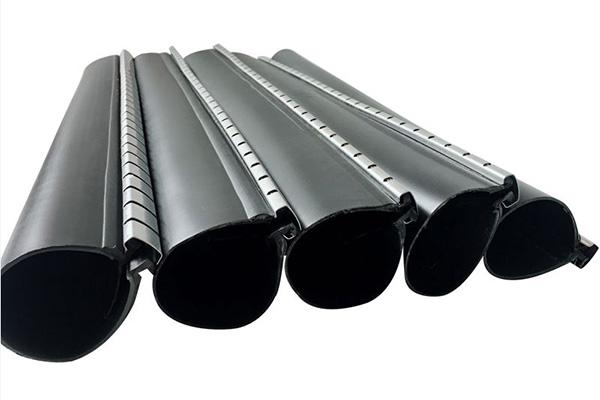The main role of heat shrink tubing in a circuit is to protect important devices and circuits from damage and impact. Although it does not have any particular impact on the operation of the circuit, it is often the key point that determines the success or failure of the entire design. With the rapid development of the electronics industry, flame-retardant heat shrink tubing is also inseparable from the electronics industry, more and more electronic products need to use flame retardant heat shrink tubing for protection. The flame retardant processing of the heat shrink tube, when attacked by external fire sources, can effectively block, delay or stop the transmission of flame, to achieve the effect of flame retardant.

Flame retardants are also divided into various types, according to the method of use is divided into additive flame retardants and reactive flame retardants. Flame retardants are mainly organic flame retardants and inorganic flame retardants, halogen flame retardants (organic chlorides and organic bromides), and non-halogen. An organic is a number of flame retardants represented by the bromine system, phosphorus and nitrogen, nitrogen and red phosphorus, and compounds. Inorganic is mainly antimony trioxide, magnesium hydroxide, aluminum hydroxide, silicon system, and other flame retardant systems.
Reactive flame retardants are used as a monomer to participate in the polymerization reaction so that the polymer itself contains flame retardant components. The advantage is that it has less impact on the performance of polymer materials and has durable flame retardants. From the varieties of flame retardants, the flame retardants of heat shrinkable tubes on the market are generally divided into three kinds: halogen flame retardants, red phosphorus flame retardants, and magnesium hydroxide flame retardants. Because of the different flame retardants, the heat-shrinkable tubes produced from the texture, appearance, odor, and price are different.
Halogen flame-retardant heat shrinkable tube: Itself with a little smell, after the heat shrinkage will occur must be harmful to the air, belong to the type of environmentally unfriendly products. Red phosphorus flame retardant heat-shrinkable tube: Itself odorless, because of the red phosphorus composition, in the case of heating and water, because phosphorus is a nutrient, the higher the content will constitute eutrophication, resulting in rapid reproduction of algae. This will deplete the oxygen in the water so that aquatic plants and animals die, many of the algae also die due to lack of oxygen decay, so that the water body completely lost the use of the function. Uime sin, as part of the comprehensive management of water pollution, the phosphorus ban is an important measure.
Magnesium hydroxide flame retardant heat shrink tube: magnesium hydroxide decomposition occurs when heated to absorb heat from the exterior of the incendiary material to play a flame retardant effect. At the same time release, a lot of water dilution of oxygen on the surface of the incendiary, decomposition of the produced active magnesium oxide attached to the surface of combustible materials and further obstruct the incineration. Magnesium hydroxide in the whole flame retardant process not only does not have any harmful substances, and decomposition of the product in the flame retardant at the same time can also absorb a lot of rubber, plastic, and other polymers’ incineration of harmful gases and smoke.
An-dràsta: the United States, Britain, Japan, and other developed countries in the development and application of flame retardant heat-shrinkable tubes in the leading position. Although the development and production of flame retardant heat-shrinkable tubes in China are not long, the development is fast. Now the direction of development is: multi-functional, multi-species, and its application areas are becoming more and more extensive. In short, the application field of flame retardant heat shrinkable tube can be said to be deep into the national economy of various industries, is a very promising new industry.



